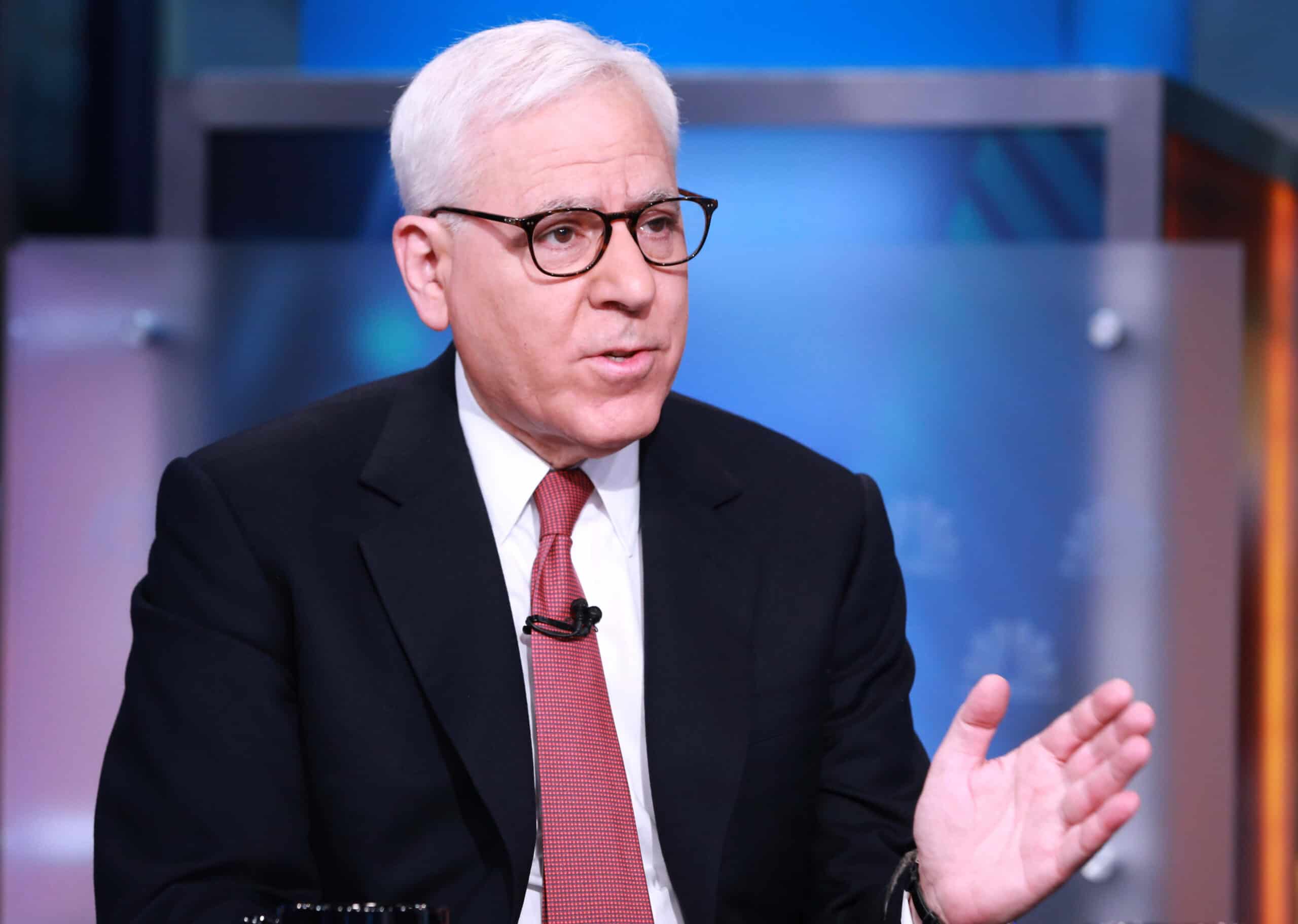Carlyle Group co-founder David Rubenstein told CNBC on Monday he is “still a little nervous” about the stock market’s robust rally from its coronavirus-era lows.
“I think the market has somewhere more to go, but on the other hand, I don’t think it can keep going up forever at this pace,” Rubenstein said on “Squawk Box.” “I think there will be a pause at some point.”
Rubenstein’s comments come as both the S&P 500 and Dow Jones Industrial Average are set to post their best August performance in more than 30 years, with gains of 7.2% and over 8%, respectively, before the final day of trading in the month.
Since their intraday bottoms on March 23, following a weekslong sell-off induced by the Covid-19, the S&P 500 has rallied about 60%. The Dow has gained 57% since then.
Rubenstein, co-executive chairman of the private equity giant, said the Federal Reserve’s recent policy shift on inflation, which could keep interest rates lower for longer, may be a near-term reason for stocks to continue moving higher.
“The Fed’s statement … last week made it clear the Fed is going to be very accommodative for a while, and that might be fueling the markets for a while,” said Rubenstein, who served in the Carter administration prior to co-founding the Carlyle Group in 1987.
The Fed’s new policy will allow for inflation to run “moderately” above its 2% goal as it seeks to help the U.S. economy dig out of the devastating hole caused by the pandemic. Since the 2008-09 financial crisis, the central bank has struggled to hit its 2% inflation target.
Rubenstein said he believes somewhat higher inflation would hardly be a problem. “I think inflation of about 3% or 4% would not be bad for the economy, probably would be good for the economy.”
“Inflation is a much more complicated thing to get when you really want it than you might think it is,” added Rubenstein. He said he is well-versed on the subject due to his time working for former President Jimmy Carter and the double-digit inflation that occurred while he was in the White House.
“We used to think in deflation was a big problem. Now I think inflation is a bigger problem in terms of getting it. We just can’t seem to get enough inflation to really make the economy go and grow as much as I think it should,” Rubenstein said.
Rubenstein said he believes the November presidential election hasn’t worried Wall Street so far. “Neither the Democratic Party or the Republican Party is saying things that is going to scare the market,” he said.
But Rubenstein contended that whoever wins — whether it’s President Donald Trump for a second term or former Vice President Joe Biden — will likely have to reckon with the federal government’s debt and the need to raise taxes.
“Nobody wants to focus on that now, and if I were a candidate, I wouldn’t focus on it either,” he said. But, he added, “we can’t keep having half our budget come from borrowing money. I think at some point we’ll have to pay some of this down, and at some point, we’ll probably have to pay for it with greater taxes.”
Rubenstein said both candidates will end up being “OK for the investment world.” But he emphasized that “economic and financial realities” must be dealt with.
“People don’t tend to say a lot negative things about how things are going to be when they’re campaigning. They tend to have to deal with some of these realities once they’re elected. But that’s what the market recognizes,” said Rubenstein, who authored a new book, “How To Lead,” in which CEOs and other prominent figures share lessons on leadership.
He added that private equity will probably do “reasonably well” under a second Trump term or a Biden administration.
Although Trump and Biden have different ideological platforms, Rubenstein said, “I think you have to assume whoever is elected will probably have to do some similar things. I suspect there will be some tax increases, whoever is elected, just to pay for some of the deficits we now have.”
“I suspect at some point down the road interest rates will go up, but probably not for a while,” he said.

